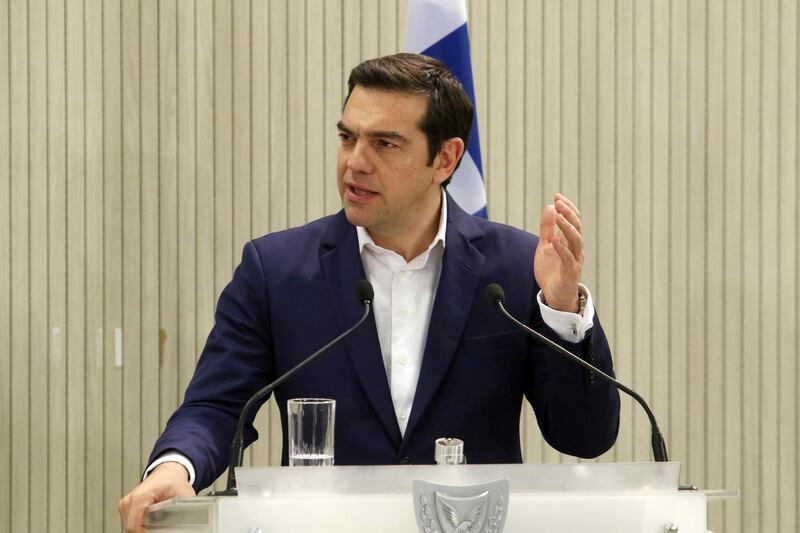The prime ministers of Greece and Macedonia will meet on Wednesday for the latest attempt to resolve a country name dispute that has dogged the neighbours for 27 years and threatens to spill over into a broader geopolitical struggle.
Greece has demanded that the Republic of Macedonia changes the name it shares with a Greek province because it implies a territorial claim. It has vetoed the smaller country’s bid for membership of Nato and the European Union because of the dispute.
The dispute has rumbled on since Macedonia declared independence from Yugoslavia in 1991, but moves towards a deal have been bitterly opposed by nationalists in both countries.
Some 90,000 people protested against any prospect of a deal at the weekend in the northern port city of Thessaloniki, the capital of the Greek province of Macedonia. They carried posters and banners saying: “Macedonia is Greek”.
The country’s two leaders, Alexis Tsipras of Greece and Zoran Zaev of Macedonia, will meet at the World Economic Forum in Davos after the start of talks last week at the United Nations aimed at seeking a compromise.
The talks have been possible through the pragmatic leadership of the two men, who have faced opposition from powerful forces at home against striking a deal that could lead to closer ties between countries within the region, said analysts.
Mr Tsipras said in an interview on Sunday that he could accept a composite name that included the word Macedonia. Reports have suggested the inclusion of a word like ‘North’ or ‘New’ to differentiate the country from the Greek province. The country is represented in international organisations as The Former Yugoslav Republic of Macedonia.
Analysts said that any failure to resolve the dispute could see Russia, Turkey and China increase their influence in the region if countries such as Macedonia saw no prospect of becoming part of EU and Nato.
“If the EU is not a key player, then others will step in,” said Daniel Smilov, a political analyst at the Sofia-based Centre for Liberal Strategies. “Russia and China have strong interests.”
_________________
Read more:
[ Tens of thousands join Greek protest over Macedonia row ]
[ ‘Bears’ eat up Macedonia’s budget ]
_________________
Greece vetoed Macedonia’s application to join Nato in 2008 because of the dispute over its name. Macedonia is hoping for an invitation to join the military alliance this year in the face of growing Russian influence.
The small Balkan nation had major strategic importance for the EU as a key staging post during the European migration crisis. Hundreds of thousands of refugees headed north across the border it shares with Greece into Europe.
“If they repeat the mistake of 2008, it would be a clear invitation for different players from the south east part of the Mediterranean like ISIL, or north east powers like Russia,” said Blerim Reka, a professor of international law and former ambassador of the Republic of Macedonia to the EU. “That’s why they should close the last obstacle for Nato membership.”
Bulgaria and Greece in 2012 both blocked Macedonia from entering into accession talks with the European Union.
Bulgaria then accused Macedonia of “badmouthing” the country but relations have improved with the ascent of Mr Zaev’s centre-left party and the defeat of nationalists at elections in 2017.
Attempts to solve the dispute are part of broader attempts to improve relations between the countries in the region. Bulgaria and Macedonia have both signed off on a good neighbour agreement.
The weekend demonstrations in Greece were also not of the same scale as in 1992 when the name issue first flared, suggesting improving prospects of doing a deal.
Nationalist parties in Bulgaria joined the name dispute this week to back Macedonia, but senior Greek politicians said that solving the dispute rested with them and the Macedonian leadership.
“No one is putting pressure and we do not allow anyone to pressure us,” said Greek Foreign Minister Nikos Kotzias quoted by Macedonian media. “We are close to a solution on certain issues. I believe topics to be discussed in Davos on Wednesday will show the direction.”







